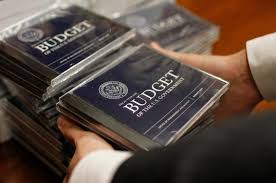Illinois may get downgraded to junk despite budget deal

Illinois may still get slapped with a “junk” credit rating despite nearing a breakthrough that would end the state’s two-year budget nightmare.
Moody’s warned on Wednesday that it may downgrade Illinois’s credit rating because the proposed budget and accompanying tax increases don’t fix the root causes of the state’s epic financial mess.
A downgrade would make Illinois America’s first state with a junk credit rating and could make its recovery efforts even harder by causing borrowing costs to rise.
The budget compromise, which includes a 32% tax hike, lacks “broad bipartisan support” and that may “signal shortcomings” in its effectiveness, Moody’s warned.
Illinois Republican Governor Bruce Rauner on Wednesday slammed the tax hike as a “phony” solution that will be a “disaster,” a day after he vetoed the budget legislation. The state Senate voted on Tuesday to override the veto and the House is expected to follow suit later this week.
Moody’s said its decision to place Illinois under review for possible downgrade incorporates its view that the legislature will override Rauner’s veto and raise taxes.
The fact that Moody’s is considering a downgrade despite a possible budget deal speaks volumes about the massive challenges facing Illinois after decades of mismanagement.
Related: How Illinois became America’s most messed-up state
Not only has the two-year budget standoff caused Illinois to rack up $ 15 billion in unpaid bills, but Moody’s estimates it has a staggering $ 251 billion in unfunded pension liabilities.
Even though the budget deal would raise $ 5 billion in revenue by boosting corporate and individual tax rates, it does little to address the pension time bomb that built up over many years as the state’s powerful unions negotiated better benefits and lawmakers failed to pay for them.
“So far, the plan appears to lack concrete measures that will materially improve Illinois’ long-term capacity to address its unfunded pension liabilities,” Moody’s wrote.
S&P Global Ratings had previously warned it could downgrade Illinois to junk if the state failed to reach a budget deal. S&P has not conclusively ruled on the budget compromise yet. However, the firm did say on Monday that while the compromise may represent a “first step in a stabilization” of the state’s outlook, Illinois finances will likely “remain strained and vulnerable to unanticipated economic stress.”
Critics complained that Illinois lawmakers have failed to put Illinois on a sustainable spending path.
“It’s a straight-up tax increase. In the past they at least pretended there was spending reform,” said Diana Rickert, vice president of communications at the Illinois Policy Institute, a free market-oriented think tank.
Under the terms of the agreement, Illinois personal tax rates will rise from 3.75% to 4.95%, while the corporate tax rate will go from 5.25% to 7%.
Related: Illinois is starving state colleges and universities
Even if the budget deal is enough to “satisfy” the ratings companies, Rickert said it doesn’t “change the fact that Illinois is pretty much insolvent and already trading at junk.”
A separate bill passed by state lawmakers would allow Illinois to borrow $ 6 billion to help pay down some — but not all — of the $ 15 billion backlog of unpaid bills.
Moody’s notes that this part of the state’s fiscal plan leaves it”not only dependent on market access to ease liquidity pressures, but also facing a significant increase in its tax-supported debt burden.”
In other words, Illinois will have to take on yet more debt to pay its debt.
Liberals complained that the budget compromise failed to generate even more revenue and included painful across-the-board spending cuts.
“It’s like taking a meat cleaver to spending rather than a surgeon scalpel,” said Ralph Martire, executive director at the Center for Tax and Budget Accountability, a think tank that promotes social and economic justice.
He pointed to how state funding for public colleges and universities has slowed to a dribble.
Martire said that while the compromise “represents a step forward,” the fact that Illinois went without a budget for two years was “highly irresponsible on behalf of everyone involved.”
Moody’s said it places ratings on review when action may be needed in the near term but further information or analysis is needed to reach a decision. The ratings company said most reviews are completed within 30 to 90 days.










